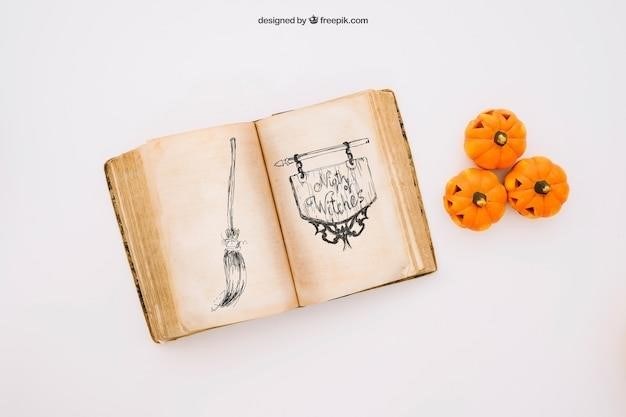Charlottes Web Book PDF⁚ A Comprehensive Guide
This guide explores the availability of “Charlotte’s Web” PDFs, addressing legal downloading concerns and recommending legitimate online sources. We compare various platforms offering the ebook, highlighting their pros and cons for readers seeking access to this classic children’s story.
Availability of PDF Downloads
Finding “Charlotte’s Web” as a PDF online presents a mixed bag. While numerous websites offer free downloads, legality and safety are major concerns. Many sources lack verification, potentially exposing users to malware or copyright infringement. Some legitimate platforms, like online bookstores or library ebook services, might offer “Charlotte’s Web” as a purchasable PDF or within a subscription. Free downloads often appear on less reputable sites, potentially containing viruses or altered content. Therefore, exercising caution when choosing a download source is crucial. Always verify the website’s legitimacy before proceeding with a download. The availability of a free, legal PDF is limited, but paid options or library access provide safer alternatives. Remember that respecting copyright is essential. The ease of finding PDFs doesn’t negate the legal ownership of the book’s content.
Legal and Ethical Considerations of Downloading PDFs
Downloading copyrighted material, including PDFs of “Charlotte’s Web,” without permission is illegal. Authors and publishers hold rights to their work, and unauthorized distribution infringes upon these rights. Downloading from unofficial sources poses risks beyond legal repercussions. These sources may contain malware, viruses, or altered versions of the book. Ethical considerations extend beyond legality. Downloading pirated PDFs deprives authors of rightful compensation for their creative work, impacting their ability to continue writing and publishing. Supporting authors by purchasing legitimate copies helps sustain the literary community. Respecting intellectual property rights ensures a thriving environment for creativity. Choosing legal avenues like online bookstores or libraries supports creators and protects your devices from potential harm. Remember, ethical consumption contributes to a healthier literary ecosystem.
Where to Find Legitimate PDF Versions
Securing a legal PDF of “Charlotte’s Web” involves several reliable avenues. Major online bookstores like Amazon, Barnes & Noble, and others often offer ebook versions downloadable to compatible devices. These platforms provide authorized digital copies, ensuring you’re not infringing on copyright. Public libraries frequently offer digital lending services through platforms like OverDrive or Libby. These services allow you to borrow ebooks, including “Charlotte’s Web,” for a set period, providing free access to the book. If you prefer a physical copy, purchasing the book from a bookstore or library ensures you have a legal copy while supporting authors and publishers. Many websites offer free online reading, but be wary of unofficial sources. Always prioritize reputable sellers and libraries to maintain legality and avoid potential malware risks associated with unofficial downloads. Remember to check the licensing terms before using any downloaded PDF.

Exploring Online Libraries and E-book Platforms
Numerous online libraries and ebook platforms provide access to “Charlotte’s Web” in PDF or other digital formats. Project Gutenberg, a renowned digital library offering public domain books, might host older editions. However, availability varies. Many public libraries utilize OverDrive or Libby, apps allowing users to borrow ebooks digitally. Check your local library’s website to see if they offer “Charlotte’s Web” through these services. Subscription services like Kindle Unlimited or Google Play Books often include “Charlotte’s Web” in their catalogs, though availability can change. These subscriptions offer a wide range of ebooks for a monthly fee. Remember to check the terms of service and the availability of the specific edition before subscribing to any platform. Always ensure you are using a reputable and authorized source to avoid copyright infringement and potential malware risks associated with less-known websites.
Comparison of Different Online Resources
Finding “Charlotte’s Web” as a PDF involves navigating various online resources, each with its own strengths and weaknesses. Project Gutenberg, while offering free public domain works, might not always have the most recent editions or the specific illustrations you prefer. Public library ebook services, accessible via apps like OverDrive or Libby, provide a convenient borrowing system, but availability depends on your local library’s collection and may involve waiting lists. Commercial ebook platforms, like Amazon Kindle or Google Play Books, provide immediate access to various editions, including potentially illustrated versions, but require purchases or subscriptions. Free download sites should be approached cautiously, as they may offer pirated copies or contain malware. Therefore, a careful evaluation of the source’s reputation, cost, and potential risks is crucial before downloading a PDF of “Charlotte’s Web.” Consider the importance of supporting authors and publishers by choosing legitimate sources whenever possible.

Analyzing Charlottes Web’s Content
This section delves into the enduring themes, character development, and lasting impact of E.B. White’s classic children’s novel, “Charlotte’s Web,” exploring its critical reception and legacy in literature.
Key Themes and Motifs in the Novel
E.B. White’s “Charlotte’s Web” masterfully weaves together several profound themes that resonate with readers of all ages. Friendship takes center stage, showcasing the unlikely bond between Wilbur, the pig, and Charlotte, the spider. Their relationship transcends species, highlighting the power of loyalty and selfless devotion. The fleeting nature of life and the inevitability of death are subtly explored through the life cycle of Charlotte and the acceptance of mortality by the other characters. The importance of appreciating life’s simple joys, such as the beauty of nature and the satisfaction of hard work, are woven into the narrative. Furthermore, the story celebrates the power of words and language, demonstrating how Charlotte’s carefully chosen words impact Wilbur’s fate and the perceptions of others. The theme of family and community is also present, as Wilbur finds support and friendship within the barn community. The narrative’s exploration of these themes makes “Charlotte’s Web” a timeless classic that continues to captivate readers.
Character Development and Relationships
The characters in “Charlotte’s Web” are richly developed, each contributing to the narrative’s emotional depth. Wilbur, the pig, evolves from a naive and fearful creature to a more confident and appreciative individual, largely due to Charlotte’s influence. Charlotte herself undergoes a transformation, her initial self-interest giving way to a profound devotion to Wilbur. Their relationship forms the emotional core of the story, exemplifying unwavering loyalty and self-sacrifice. Fern Arable, the compassionate young girl, represents innocence and empathy, demonstrating a deep understanding of animals and their needs. The supporting characters, such as Templeton the rat and the other barn animals, add complexity and humor, enriching the overall dynamic. Their interactions with Wilbur and Charlotte highlight the diverse perspectives and relationships within the barn community. The development of these characters and their interconnected relationships drive the plot and create a compelling narrative that explores themes of friendship, loyalty, and the acceptance of life’s natural cycle.
The Story’s Impact on Children’s Literature
E.B. White’s “Charlotte’s Web” holds a significant place in children’s literature, impacting generations of readers and inspiring countless adaptations. Its enduring appeal stems from its heartwarming narrative, exploring universal themes of friendship, loyalty, and the acceptance of mortality in an accessible and engaging manner. The book’s success lies in its ability to seamlessly blend elements of fantasy and realism, creating a believable world inhabited by anthropomorphic animals. Charlotte’s cleverness and selflessness, coupled with Wilbur’s vulnerability and growth, resonate deeply with young readers, prompting reflection on important life lessons. The novel’s clear prose and charming illustrations further enhance its accessibility, making it suitable for a wide range of ages and reading levels. Its enduring popularity is a testament to its timeless themes and captivating storytelling, solidifying its status as a classic of children’s literature, influencing countless subsequent works in both style and thematic content.
Critical Reception and Legacy of the Book
Since its publication in 1952, “Charlotte’s Web” has garnered overwhelmingly positive critical acclaim. Reviewers consistently praise its masterful storytelling, memorable characters, and exploration of profound themes. The book’s delicate balance between heartwarming narrative and poignant reflections on life and death has resonated with critics and readers alike. Its enduring popularity is evidenced by its continued presence on recommended reading lists and its adaptation into various media, including film and stage productions. The novel’s impact extends beyond its literary merit; it has inspired countless discussions on animal welfare, environmental consciousness, and the importance of friendship. “Charlotte’s Web” has become a staple in classrooms and libraries worldwide, shaping the reading experiences of countless children and sparking numerous analyses within the academic world. The book’s legacy lies not just in its storytelling brilliance, but in its ability to inspire empathy, understanding, and a deeper appreciation for the natural world. Its continued relevance underscores its timeless appeal and enduring contribution to children’s literature.